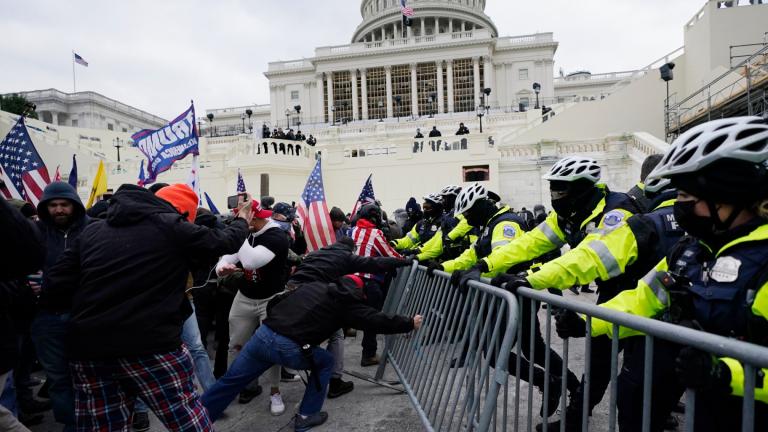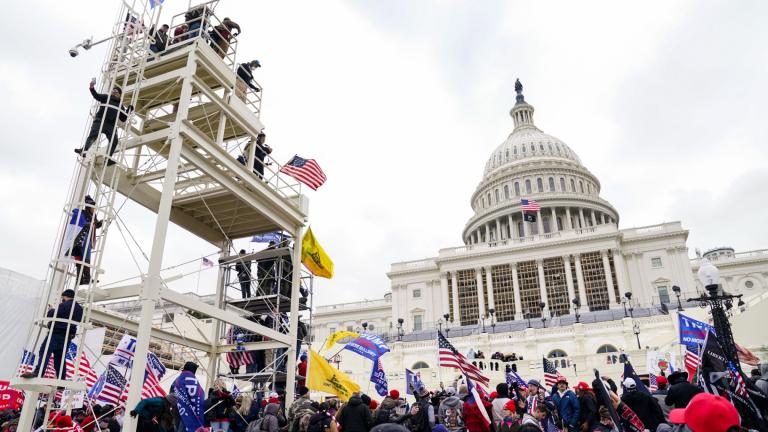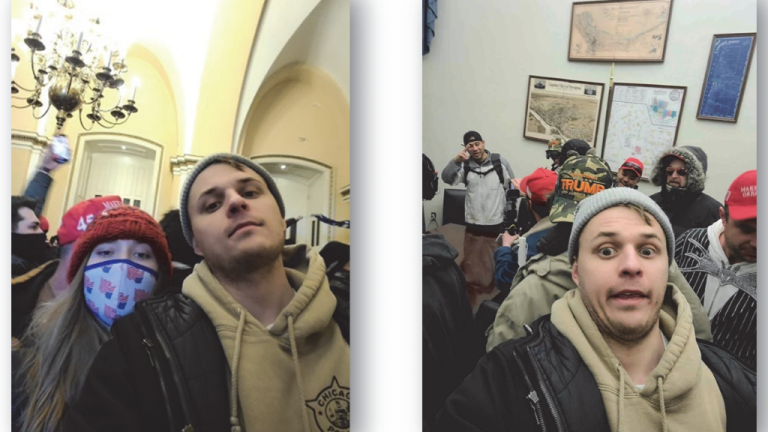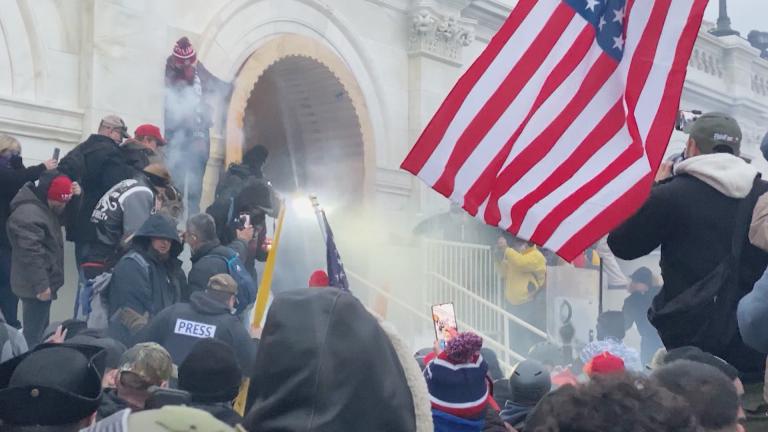The ideas that contributed to the insurrection at the U.S. Capitol one year ago are still alive and well, according to experts and recent polling.
About 8% of adults, or 21 million people, support the idea that the 2020 election was stolen and the Biden presidency is illegitimate, according to a study from the Chicago Project on Security and Threats.
A year after the violent riot, some reports show that many of these ideas have become more mainstream and the far right has gained supporters.
“What we saw on Jan. 6, and what we’re seeing in the country today, is an insurrection movement that’s coming from the mainstream of America,” said Robert Pape, professor of political science at the University of Chicago and director of the Chicago Project on Security and Threats.
Pape said the county is used to viewing far-right extremism and terrorism in general as existing on the fringes of society.
“When we look at the details of who broke into the Capitol, and also when we look at the millions who have sympathy for those who broke into the Capitol, we see a very different picture,” Pape said.
One study from the project found that of the 716 people who were arrested for breaking into the Capitol, 43% were white-collar workers and 26% were business owners.
According to the research, only 13% of those arrested were affiliated with militant groups like the Oath Keepers or extremist groups like the Proud Boys.
Odette Yousef, a national security correspondent with NPR who focuses on extremism, said even before the insurrection and into this past year there’s been a shift in far-right organizing. Overt organizing and events online have moved toward more decentralized and localized approaches.
An example in that shift can be seen at local school board meetings where conflicts that are not necessarily related to the election, like mask mandates and the teaching of critical race theory, have surfaced, Yousef said.
“We saw some far-right organizations inserting themselves into those local settings and finding receptive audiences to disinformation that they have been spreading around the election, and finding people that they could recruit to this notion of the necessity of political violence,” Yousef said.
The movement can also be seen as an attack on voting rights, said Alvin Tillery, associate professor of political science and director of the Center for the Study of Diversity and Democracy at Northwestern University.
He points to states like Georgia that have seen the passage of measures that restrict voting access.
“We’re all watching the Republican Party descend into an authoritarian movement, but the party continues to be normalized by the media and by our culture, so people think ‘Oh, it really can’t happen here,’” Tillery said. “We are very much in the 11th hour of our democracy in my view.”








